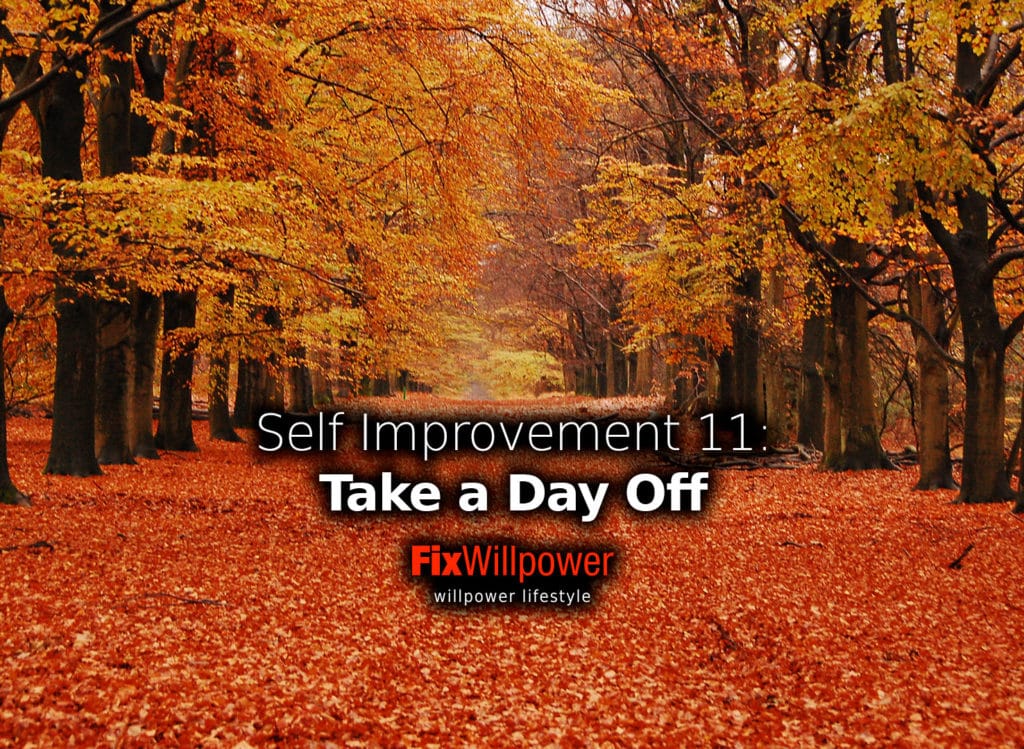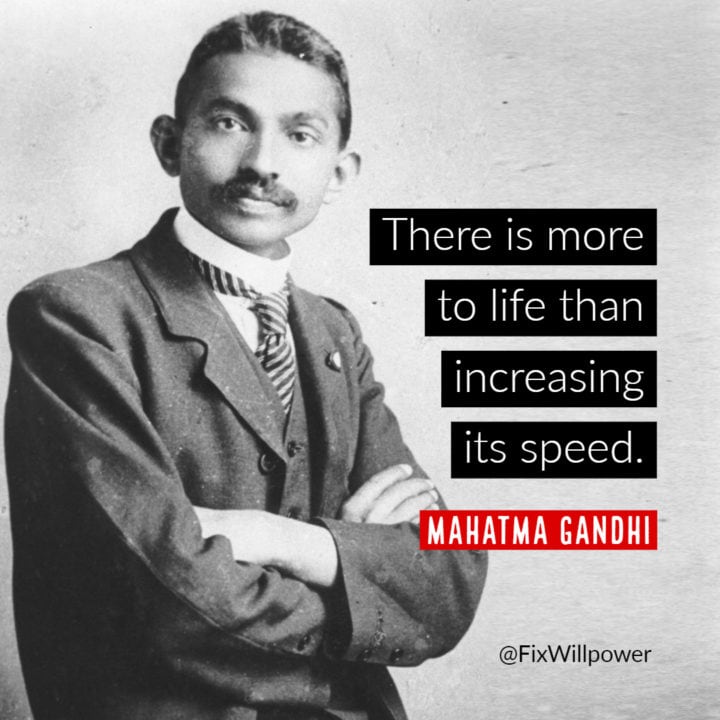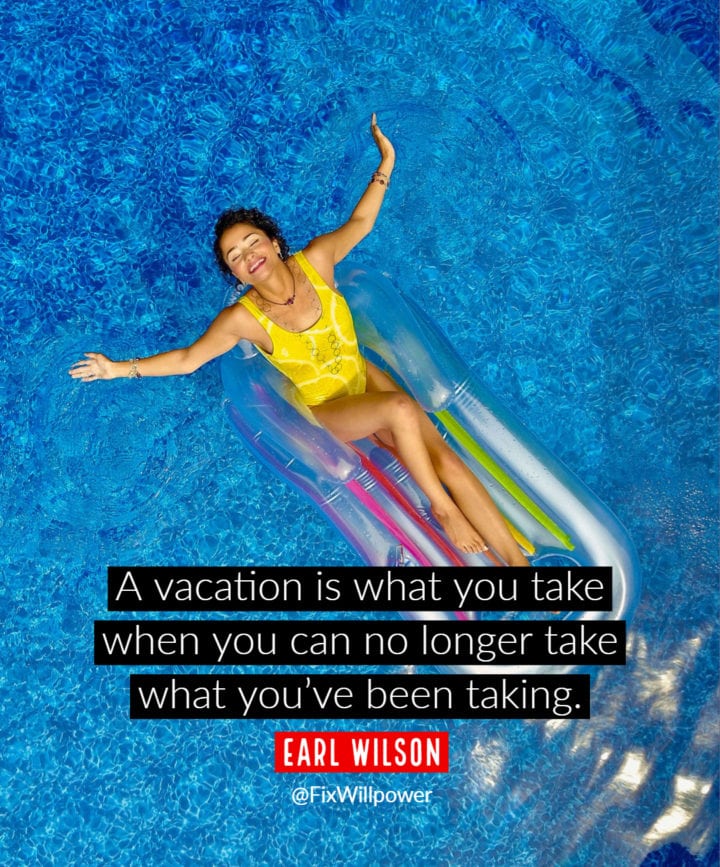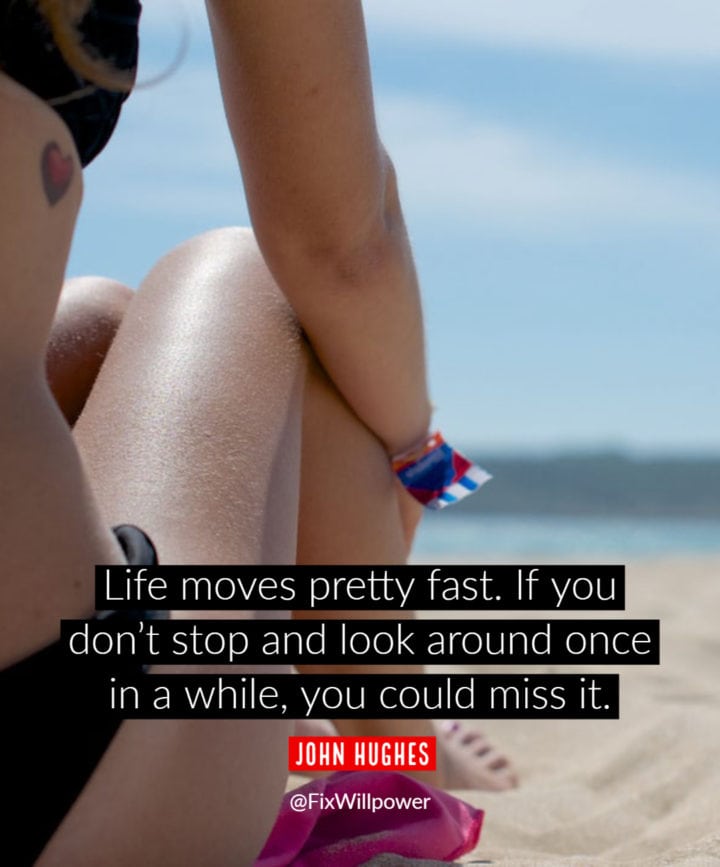Take a day off.
You are not a robot.
From time to time, step out of the rat race and have a day just for yourself.
Here’s what to keep in mind when you plan for your day off.

I find it incredibly hard to take time off. I’m afraid that when I slack off, then I can’t get moving again. This mindset leads to longer working hours. You have less time for the important things in your life.
Too much work can eventually lead to burnout and even depression.
Use that day to unplug and relax.
Key Points Summary for Taking a Day Off
1. Importance of Taking Time Off: Regular breaks are essential for mental and physical well-being. Overworking can lead to burnout and depression. Taking a day off allows you to recharge and return to work with renewed energy and focus. Now what? Schedule a day off regularly to unplug and relax.
2. Protect Your Downtime: Ensure your day off is free from work-related interruptions. Inform others of your unavailability and turn off all notifications to avoid distractions. Now what? Mark your day off on your calendar and treat it as a non-negotiable appointment. Turn off devices and avoid work-related activities.
3. Planning Your Day Off: Make a loose plan for your day off to avoid decision fatigue. Focus on activities that you enjoy and that help you unwind. Avoid chores or demanding tasks unless they are part of your relaxation. Now what? Plan your day off the night before, including activities that bring you joy and relaxation. Delegate any necessary tasks to others.
4. Indulge in Relaxation and Leisure: Use your day off to indulge in activities that you find relaxing and enjoyable. This could include reading, watching a movie, spending time with friends, or enjoying a hobby. Now what? Slow down your pace. Wake up without an alarm, eat a leisurely breakfast, and avoid rushing through your day. Buffer extra time for commuting to avoid stress.
5. Rejuvenation and Recovery: A well-planned day off can significantly boost your productivity and well-being. Ensure you get enough sleep and avoid overindulging in alcohol to wake up refreshed the next day. Now what? Plan to go to bed earlier than usual the day before and on your day off. This helps you wake up with extra energy, ensuring you feel rejuvenated and ready to tackle your tasks.
You can use that time to be alone, to completely unwind, but you can spend that time with friends and maybe host a party. If you are doing your day off with a partner, family, or friends, then delegate all the demanding organizing tasks to them.
Remember, inability to take time off may be a sign of a workaholic.
Protect your downtime
Your decision to rest is admirable. However, the world will not stop making its demands on you. You must protect your downtime. If you have decided to take a day off, then let everybody know you will be unavailable.
Of course, you can’t let all people know you are taking a day off. Some people will still try to contact you. Even the people who know you are not available will try to contact you.
- Put downtime on your calendar.
- Avoid all work-related activities and communication.
- Turn off all devices, notifications, tools that may steal your downtime.
If you don’t put it in your calendar, then it’s not real. Force yourself to take it easy.

For me, the best vacation is just relaxing on the couch! ~ Scotty McCreery
How to take a day off?
It’s the day off. There will be other days when you don’t work but do the chores.
- Make a plan for the day off.
- Let your family and friends know if needed.
- Execute your plan in a relaxed manner.
Certainly, your day off may also include more physically or mentally demanding tasks. If so, don’t overdo it. Running a new personal best marathon is not a good idea if you have to recuperate for several days. Helping a friend run a marathon at a slower pace than your usual running tempo is OK.
Take your time!
Relax!
Do everything at half the speed and effort you would usually do.
Tim Ferriss takes a week off every other month. In that week he doesn’t read and doesn’t use gadgets. He can write but does it with pen and paper.
The science of the day off
GaryV tells you to work 24/7.
Not cool!
GaryV has had a lot of luck in his life. One of the most important things is that he is in love with what he’s doing.
I don’t hate what I do for work. I love it!
Still, taking some time off every once in a while is a wonderful idea for most of us. And if GaryV’s assistants upload 10 videos per day, telling you to work more.
Don’t!
Here the science to back the day off:
- Take a day off to improve your short-term memory scientificamerican.com
- Brief diversions vastly improve focus, researchers find news.illinois.edu
- You are more productive when you take time off forbes.com
- Getting away from work boosts your immune system www.ncbi.nlm.nih.gov
- A Day of Rest: 12 Scientific Reasons It Works inc.com

As you grow older, you learn a few things. One of them is to actually take the time you’ve allotted for vacation. ~ John Battelle
Do only the things you want to do
Make the plan for the day off the evening before.
The plan allows you to avoid the pressure of thinking about what to do on your day off. The plan should not have concrete times, only loosely spaced activities that you want to do on that day.
Plan for the day off so you don’t have any chores, and other people will not fill your day with their requests. It’s not the day off if you have to clean the house, visit relatives, wash your car, mow the lawn, or other such activities. Unless you decide in advance to do those things as something that relaxes you.
Exerting yourself is OK if it’s something you want to do, and it doesn’t leave a mark for the next day.
Do only the things you want to do and enjoy doing.
Slow down your pace
Activities for the day begin with waking up without an alarm clock. Take some time to get out of the bed. Slow down; there’s no rush. Eat breakfast, read, or enjoy your favorite music with that.
If you want to go to a movie or a day spa or a museum or a ball game. Make sure to buffer your commute times by 50%. The buffer ensures that there’s no rush and commute will not stress you out by having to arrive on time.

There is more to life than increasing its speed. ~ Mahatma Gandhi
Avoid confrontations
Decide that whatever happens, you will not get mad. When someone is rude, just ignore it, distance yourself mentally, and walk away. Letting it go will make the potentially stressful experience drift away, and your day off will continue to be unhurried and relaxed.
You can read more about letting it go and how giving in from time to time helps you in this article.
Indulge yourself
After the day’s events, have a superb dinner and indulge yourself. Try not to overeat as this would lower your overall sense of well-being.
Go home, wind down, no rush, everything is all right, relaxed. Maybe a little bit of wine and a light snack. Indulge. Go to bed earlier than usual and make a plan to restart yourself in the next morning.
Do it with your partner
You can do all that with a partner, friend, family member, etc. The expectations of the other party may create undue mental stress.
Keep in mind that on that day, it’s more about you, and if you have a companion, they should not put any unnecessary pressure on you.
If you do the day off with a partner, then they should be old enough to understand what it’s all about. You can’t do it with a small kid.
Let your partner know what it’s all about and maybe even ask them to help you become even more relaxed. If you are doing it with your spouse or friend, then promise to do the same thing for them when they want it.
No computer or gadgets
Avoid computers, smartphones, and other devices.
Turn off all notifications, put the phone in silent mode, or, better yet, use the airplane mode. You will call them back when you feel like it, maybe tomorrow. No social media.
The day doesn’t have to be completely free of work. Sometimes, you may need to make an exception to this rule.
For example, I have a challenge where I write at least 500 words every day.
On my daily writing challenge, I’m on a day 1217 and I don’t want to break that chain. I will write on my day off, but I will do it in a relaxed manner. Maybe I’ll write a stream of consciousness as it doesn’t take much effort. Usually, I take 30 to 60 minutes and complete the task as early in the day as possible. The best time for writing is after waking up, having breakfast, and relaxing a little bit. The willpower level is near its maximum, and the task will take relatively little time.
Usually we don’t have 1000-day challenges.
Most people do 21, 30, or 100-day challenges. Plan ahead and make sure you don’t put your day off in the middle of your important challenge.

A vacation is what you take when you can no longer take what you’ve been taking. ~ Earl Wilson
When to take the day off?
The best time for you depends on your schedule.
First, it sometimes seems impossible to take time off when you have an extremely tight schedule. Do it anyway. You need the break the most when you are under heavy load and stressed out. Find that day and do it.
In most cases, we have a regular working schedule. Make a decision that you will have a day off every two or three months and put that in your calendar. More often if you can.
And lastly, if you are self-employed and the demands on your time are fully under your control, take one day at least every two months.
But what day of the week should you take the day off?
The most obvious answer is Saturday.
Most people don’t have a working day on Saturday, and this takes care of all the work-related tasks. Saturday is also an excellent choice because on the Sunday you still have some time to relax before you get back to full speed.
Sunday is also an option, but it lacks the buffer on the following day.
Then there are national holidays you can use as your day off. Thanksgiving and Christmas may not be good choices as most people have social events planned for those days. Social events may be a source of stress you want to avoid on your day off.
In the middle of the week.
This is hard core!
Take Wednesday, for example. You can use your vacation days of if you are your own boss then just decide you take the day off. You have to make sure that your work and other responsibilities won’t derail your plan to completely relax.
The day off in the middle of the week may even feel like cheating. You could stress out because you know there are some things you have to do and you just slacking off. It’s definitely worth it if you can avoid the stress and distractions.

Life moves pretty fast. If you don’t stop and look around once in a while, you could miss it. ~ John Hughes
Getting back on track
As I mentioned earlier, before you go to sleep, decide to restart and go all-in on the following day.
Getting to sleep earlier than usual will give you the extra energy in the morning. More energy will make you really feel that the day off has remade you. The day off will lose its magic if you wake up the next day tired.
This is also one reason you shouldn’t drink too much alcohol on your day off.
You want the next morning to be serene.
Warning
If you do it “right,” it will be magic and thus might be a bit addictive. There’s a real danger of getting lazy and losing momentum if you take several days off in a row. Too much time off will make the getting back on track part harder and harder.
So, don’t overdo it.
Now make a plan when will be your day off and what are you going to do with it.
How often?
At least once a year.
Every three or four months if you can.
________________________
Image: Gandhi costume Unknown
Image: Orgasmic Orange Overload by Mendhak
![Read more about the article The power of vulnerability: Brené Brown [VIDEO]](https://fixwillpower.com/wp-content/uploads/vulnerability-worthiness-429x314.jpg)

![Read more about the article How The Power of Habits Gets You Results? [2 BOOKS+VIDEOS]](https://fixwillpower.com/wp-content/uploads/power-of-habits-429x314.jpg)
